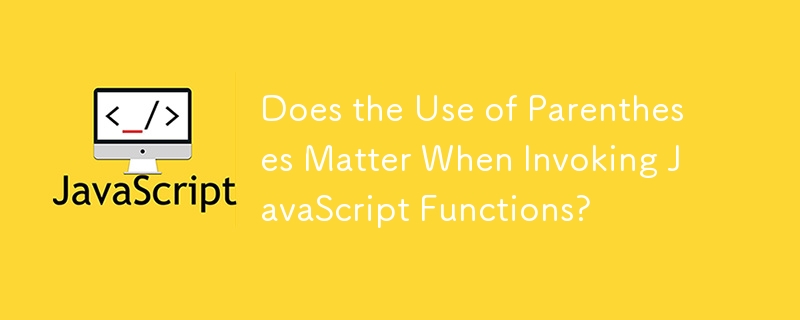

Function Invocation with Parentheses in JavaScript: Unveiling the Distinctions
When invoking functions in JavaScript, there's often a question: does the presence or absence of parentheses make a difference? Let's delve deeper into this.
Scenario 1: Executing the Function Immediately
window.onload = initAll();
In this scenario, the parentheses around initAll() indicate that the function is executed immediately. The result of this execution, which is typically a return value, is then assigned to window.onload. Generally, it's not desirable to execute the function and assign its return value to the event handler, especially if the function doesn't return a meaningful result.
Scenario 2: Assigning the Function Reference
window.onload = initAll;
Here, the absence of parentheses indicates that we're assigning the function object itself, rather than its return value, to window.onload. This is possible due to JavaScript's feature of functions being considered first-class objects. The function execution is delayed until the load event occurs.
Alternative: Invoking with an Arrow Function
window.onload = () => initAll();
In this variation, an arrow function is created. When this function is invoked (in this case, when the load event is triggered), it immediately calls initAll(). Parentheses are crucial here to separate the arrow function declaration from the function call within.
The above is the detailed content of Does the Use of Parentheses Matter When Invoking JavaScript Functions?. For more information, please follow other related articles on the PHP Chinese website!




